Scenarios
Scenarios
Learn & Connect
Learn & Connect

Simulate the most complex what-if scenario in real-time by exploiting AI/ML algorithms.
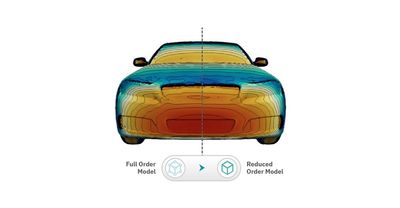
The challenges of leveraging physics-based simulations throughout the engineering design process are well-known. Simulations can be extremely computationally intensive, making them impractical for real-time use and limiting their application primarily to the design and pre-production phases. However, the growing need for accurate, high-fidelity data earlier in the design phase is pushing Original Equipment Manufacturers (OEMs) to seek alternative approaches to shorten product development processes.
Our AI Data-Driven Modeling technology puts the power of advanced machine learning (ML) and Explainable Artificial Intelligence (XAI) in the hands of no-coding engineers who need to deal with complex, high-dimensional problems that are typically associated with high-fidelity simulations.

Create and store simulation datasets to train physics-driven AI/ML models for predictive engineering.

Apply Design Optimization and uncertainty quantification strategies on top of the AI/ML-based models.

Enable non-simulation experts like CAD engineers to generate new accurate designs in a fraction of time.
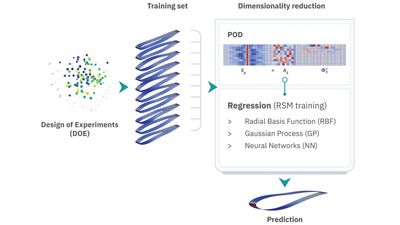
Our ROM technology is physics-neutral and allows you to obtain a surrogate of the whole high-fidelity solution. It reduces the dimensionality of a problem without sacrificing accuracy, and it works well with relatively small simulation datasets. This is a valuable asset for CAE engineers lacking the necessary hardware resources, such as GPU clusters, to train computational-intensive deep learning models on large datasets. And, ROM enables explainable AI by making it easier to understand the relationships between variables and the physical principles underlying the model compared to deep neural networks methods.
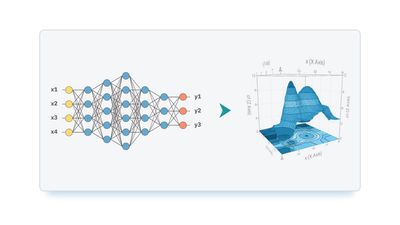
Our AI data-driven modeling technology includes ML-assisted algorithms such as Multi-Layer Perceptron Neural Networks, Distributed Random Forest, Gradient Boosting Machine. Automated ML model training (AutoML) is also available to automatically apply best practices in ML model training. Self-adapting to the training dataset using the best algorithms and automatically selecting the best accurate model. These advanced ML algorithms are able to scale up with problem dimensionality and adapt to a broad range of different models. This allows you to fully use your simulation datasets to build and train an effective metamodel, and use it for RSM-based optimization.
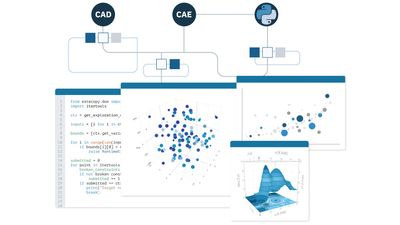
You can leverage your Python scripting skills to create custom simulation workflows as well as perform ML-based data analysis and predictive modeling within our digital engineering software solutions:
You can combine the use of ML data-driven modeling with our Simulation Process and Data Management (SPDM) technology to govern data and seamlessly run RSM-based simulation evaluations. This accommodates the need of two type of users:
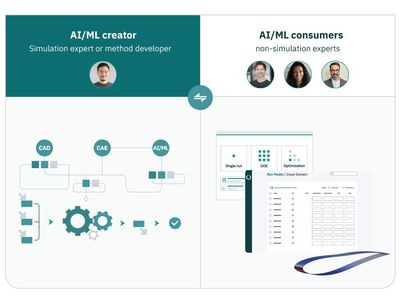

Imagine having access to a digital engineering platform that addresses simulation data governance challenges and expands the use of AI data-driven modeling. By using the VOLTA platform, you can securely manage all the data associated with the simulation models and train RSM models. Using these, non-simulation experts can easily generate hundreds of new designs and share insights in real-time with other stakeholders for informed decision-making.

If you are a domain expert who works independently and wants to use AI data-driven modeling technology to make fast design predictions, modeFRONTIER process automation and design optimization software could be ideal. You can integrate your preferred CAE solvers into the vendor-neutral simulation workflow, generate training datasets, apply AI/ML methods and post-process data-driven simulation results, all in one place.